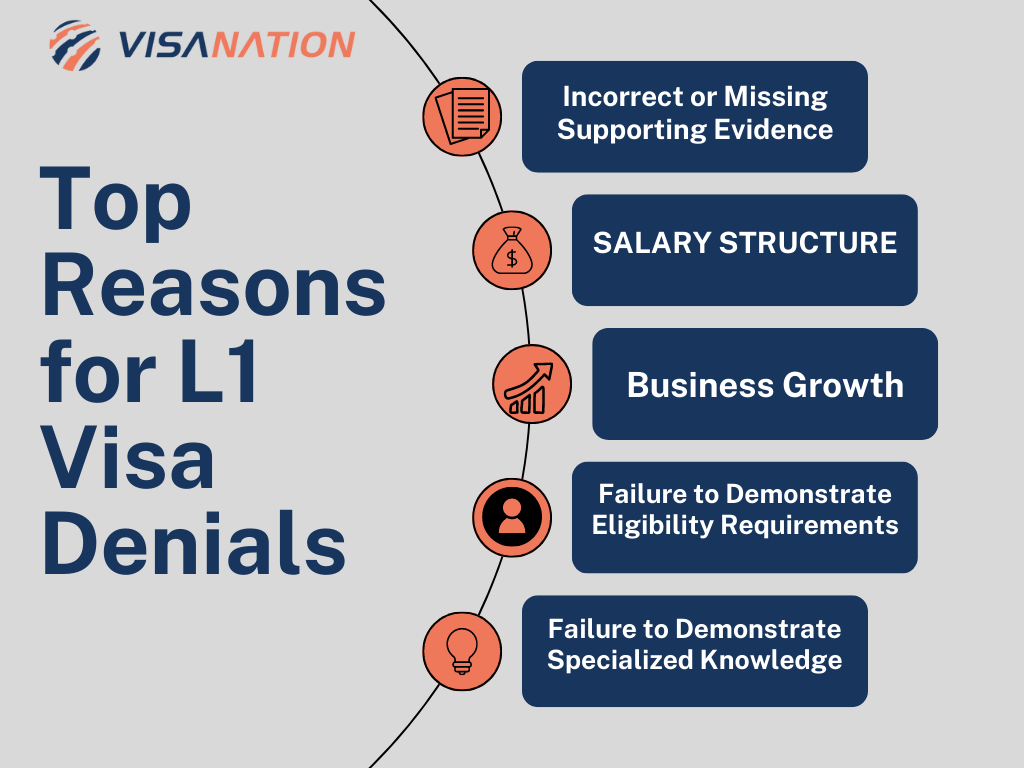Individuals in the Philippines eligible for an L1 visa are typically managers, executives, or specialized knowledge employees transferring within a multinational company to work in the U.S.

Eligibility Criteria
General Eligibility Requirements
- Qualifying Relationship with a U.S. Company: You must work for a company that has a qualifying relationship with a U.S. employer. This can be a parent company, branch, affiliate, or subsidiary.
- Intent to Depart: You should intend to leave the U.S. upon completion of your authorized stay, unless you are legally able to adjust status to another non-immigrant or immigrant status.
- Admissible to the U.S.: You must be admissible to the United States, meaning you don’t have any factors that would make you inadmissible, such as certain criminal histories or immigration violations.
Specific Requirements for L1A Visa
- Managerial or Executive Role: If you’re applying for an L1A visa, you must hold a managerial or executive role in the company. This includes roles where you manage a department, supervise staff, or make decisions at a high level within the company.
- Company Size and Structure: For L1A visas, the size and structure of the company can be important factors. Generally, larger companies with hierarchical structures are more likely to have roles that meet the managerial or executive qualifications necessary for an L1A visa.
- Financial Health of the Company: The company should be in good financial standing, showing it can support the employee’s role in the U.S.
Specific Requirements for L1B Visa
- Specialized Knowledge: For an L1B visa, you must have specialized knowledge, which can be either in the company’s product, service, management, equipment, techniques, or any other interests and its application in international markets.
- Unique Skills or Knowledge: The specialized knowledge should be unique or advanced, meaning not commonly found within the industry or the company.
- Relevance of Skills: The skills or knowledge must be crucial for the company’s operations in the U.S., highlighting the importance of your role within the organization.
Application Process in the Philippines
Where to Apply: U.S. Embassy or Consulate
- Location: The primary location for visa application in the Philippines is the U.S. Embassy in Manila.
- Online Application: Before visiting, you need to fill out the DS-160 form online. After completing the form, you will receive a DS-160 confirmation page with a barcode, which you must print and bring with you to the interview.
- Appointment: After completing the online application, you must schedule an appointment for your visa interview via the U.S. Visa Information and Appointment Services website. You’ll need your DS-160 barcode and your passport to schedule the appointment.
Documents Required
- Passport: Your passport must be valid for at least six months beyond your intended date of departure from the U.S.
- DS-160 Form: As mentioned above, the DS-160 form must be completed online and its confirmation page should be printed for your interview.
- Letter of Employment: A detailed letter from your employer outlining your role, the purpose of your transfer, and other relevant details must be provided.
- Financial Documents: Proof of the company’s financial stability, like recent tax returns or financial statements, may be required.
- Previous Visas: If you have visited the U.S. before, bring documents pertaining to your previous visits.
Application Fees
- Non-refundable Application Fee: For the L1 visa, the application fee is usually $190. This fee is non-refundable, even if your application is ultimately denied.
- Additional Charges: In some cases, an additional issuance fee may apply, depending on the reciprocity between the U.S. and the Philippines.
- Payment Methods: Payment can usually be made online, at designated banks, or at the U.S. embassy or consulate. Always follow the instructions provided during the online application process regarding fee payments.

Interview and Assessment
Preparation for the Visa Interview
- Review of Documentation: Double-check all your paperwork to ensure everything is in order. Make sure your DS-160 form, letter of employment, and financial documents are accurate and up-to-date.
- Practice Answers: Anticipate questions that may be asked during the interview and prepare clear, concise answers. Practicing with a friend or family member can be beneficial.
- Dress Professionally: First impressions matter. Dress in a business-appropriate manner to present yourself as a serious applicant.
- Know the Company: Familiarize yourself with details about the company you work for and will be transferred to. This includes understanding the company’s business model, services, and why your role is essential.
Common Questions in the Interview
- Purpose of Travel: Be prepared to explain why you are seeking an L1 visa and what your role in the U.S. company will be.
- Length of Stay: You should be clear about the estimated duration of your assignment in the U.S., being sure to align this with the documentation you’ve provided.
- Ties to the Philippines: Expect questions regarding your intent to return to the Philippines after your assignment is over. This could include inquiries about family, property, or other ties to your home country.
Factors Influencing Visa Approval or Denial
- Consistency: Inconsistencies between your interview responses and your submitted documentation can lead to visa denial.
- Financial Stability: Both your personal financial standing and that of the company can influence the decision.
- Criminal Background: Having a criminal history or previous immigration violations can adversely affect your application.
- Company Reputation: If the company you are being transferred to is involved in controversies or illegal activities, it could jeopardize your visa application.

Rights and Restrictions
Duration of Stay
- Initial Duration: An L1 visa typically allows for an initial stay of up to three years. This period can vary depending on the specifics of your employment and the agreement between your company and the U.S. authorities.
- Extensions: For L1A visa holders, extensions can be granted in two-year increments, with a total duration not exceeding seven years. For L1B visa holders, the maximum period is five years.
- Grace Period: After the expiration of your L1 visa, there’s generally a 60-day grace period to either change your status or leave the United States.
Ability to Bring Dependents
- Spouse and Children: Holders of an L1 visa have the right to bring their spouse and children under the age of 21 to the United States under the L2 visa category.
- Employment for Spouse: In some cases, spouses on an L2 visa can apply for employment authorization, allowing them to work legally in the U.S.
- Education: Dependents may also enroll in schools and universities, but they should maintain their L2 status for the duration of their studies.
Work Limitations
- Employer-specific: The L1 visa ties you to the sponsoring U.S. company, meaning you can only work for that particular employer.
- Changes in Employment:Employment changes, like moving from a managerial to non-managerial role, can impact your visa status, potentially requiring reapplication or status adjustment.
- Limited Self-Employment and Other Restrictions: Your primary focus should be the responsibilities related to your role in the sponsoring company.

Common Challenges and Pitfalls
Application Denial Reasons
- Incomplete Documentation: One of the most common reasons for L1 visa application denial is incomplete or inconsistent documentation. Always double-check that you have all the required documents before submitting your application.
- Insufficient Evidence of Expertise or Managerial Role: Failing to convincingly demonstrate your specialized knowledge (for L1B) or your managerial/executive role (for L1A) can result in denial.
- Suspected Immigrant Intent: The L1 visa is a non-immigrant visa. If the consular officer suspects you intend to immigrate, they may deny your application.
- Company Issues: Sometimes, issues related to the company, such as financial instability or not meeting the definition of a qualifying organization, can also lead to visa denials.
How to Avoid Common Mistakes
- Early Preparation: The earlier you begin the application process, the more time you have to gather all necessary documents and information.
- Consult an Immigration Attorney: It may be beneficial to consult an immigration attorney who specializes in U.S. employment-based visas to guide you through the complex application process.
- Consistent Information: Ensure that all information provided during the interview matches the data in your application forms and supporting documents to avoid discrepancies that could lead to denial.
- Follow Protocol: Pay fees, attend appointments, and promptly provide requested information.